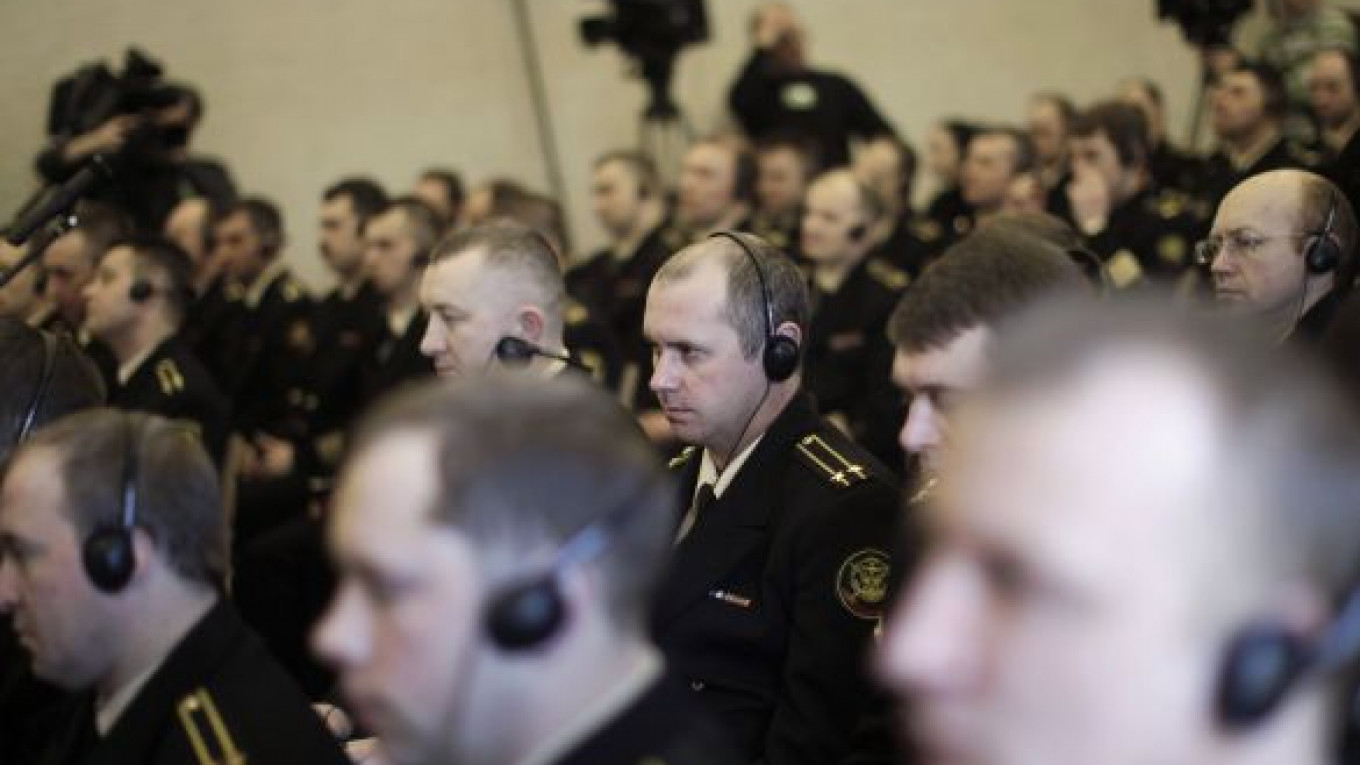ST. PETERSBURG – U.S. Defense Secretary Robert Gates on Monday took a final personal shot at easing Moscow's worries over a missile defense shield in Europe and to expand a military relationship that has grown dramatically since his Cold War days at the helm of the CIA.
Gates, who is expected to retire this summer, told reporters traveling with him to Russia that Russian cooperation in the Afghanistan war and support of UN Security Council resolutions against North Korea and Iran underscore cooperation that has dramatically evolved in recent years. Russia also abstained in the recent United Nations vote for military intervention in Libya, effectively allowing the allied assault to go forward.
"We have now had under way, for more than 40 years, the kind of dialogue with Russia that I'm just trying to get started with China," Gates told reporters traveling with him shortly before landing Monday in St. Petersburg.
Speaking to Kuznetsov Naval Academy midlevel officers during a stop at the Central Naval Museum, Gates said 21st-century security terror threats have created new opportunities for the United States and Russia to cooperate.
Both nations recognize, he said, that "allowing terrorism that weakens one nation does not provide opportunity for another, but rather ultimately increases the danger to all."
Gates, a Russian scholar, spent much of his career as an officer and later director of the CIA, focused on the threat posed by the former Soviet Union. He has made four trips to Russia as defense secretary, but said he was last in St. Petersburg in 1992, making the first trip to the city by a CIA chief.
His latest visit comes as the United States and Russia continue to joust over details and coordination of the European missile shield that is aimed at countering future Iranian threats. Russia has raised strong objections to the plan, which is already under way and begins with ship-based, anti-missile interceptors and radars. It would add land-based radars in southern Europe later this year.
The four-phase plan would put land- and sea-based radars and interceptors in several European locations over the next decade.
Gates was expected to meet with top Russian leaders, including President Dmitry Medvedev and Defense Minister Anatoly Serdyukov, who said last month that the missile shield could undermine Russian nuclear deterrent forces.
Moscow remains skeptical of U.S. insistence that the system is not aimed at Russian missiles or that it could be used against Russia's security interests.
Reflecting on the changes in U.S-Russian relations over his career, Gates suggested that they have moved from what was once a fierce rivalry to a bureaucratic brotherhood. Now, he said, the United States and Russia have a common enemy — the battle to modernize their militaries amid rising costs for weapons and elusive contract deadlines that are never met.
He said that while the two nations' interests will differ, they have learned one critical lesson from the past: to avoid the mistrust and lack of transparency that can trigger dangerous consequences.
Acknowledging that Russia still has uncertainties about the defense shield, Gates told the young officers that both are committed to resolving the differences and eventually collaborating, including on launch information, a data fusion center and conducting joint analysis.
A Message from The Moscow Times:
Dear readers,
We are facing unprecedented challenges. Russia's Prosecutor General's Office has designated The Moscow Times as an "undesirable" organization, criminalizing our work and putting our staff at risk of prosecution. This follows our earlier unjust labeling as a "foreign agent."
These actions are direct attempts to silence independent journalism in Russia. The authorities claim our work "discredits the decisions of the Russian leadership." We see things differently: we strive to provide accurate, unbiased reporting on Russia.
We, the journalists of The Moscow Times, refuse to be silenced. But to continue our work, we need your help.
Your support, no matter how small, makes a world of difference. If you can, please support us monthly starting from just $2. It's quick to set up, and every contribution makes a significant impact.
By supporting The Moscow Times, you're defending open, independent journalism in the face of repression. Thank you for standing with us.
Remind me later.


